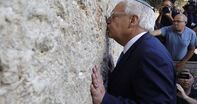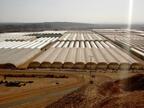6 may 2020

US ambassador to Israel David Friedman has announced Washington’s readiness to recognize Israel's sovereignty in the occupied West Bank and the Jordan Valley within the coming weeks.
In an interview with Israel Hayom newspaper on the second anniversary of moving the US embassy in Israel from Tel Aviv to Occupied Jerusalem, Friedman said prior steps need to be completed first before the recognition.
"Washington does not plan to impose any new conditions for the move," he said.
Freidman explained that the US would recognize the Israeli sovereignty after steps are taken, including the completion of mapping and halting Israeli settlements construction in Area C — which is excluded from the annexation.
"It's not the US that is declaring sovereignty but the Israeli government. Once it does, the US is ready to recognize it," he said.
Israel is expected to carry out the annexation plan on July 1st as agreed between Netanyahu and head of Blue and White party Benny Gantz, both of them currently forming a unity government.
In an interview with Israel Hayom newspaper on the second anniversary of moving the US embassy in Israel from Tel Aviv to Occupied Jerusalem, Friedman said prior steps need to be completed first before the recognition.
"Washington does not plan to impose any new conditions for the move," he said.
Freidman explained that the US would recognize the Israeli sovereignty after steps are taken, including the completion of mapping and halting Israeli settlements construction in Area C — which is excluded from the annexation.
"It's not the US that is declaring sovereignty but the Israeli government. Once it does, the US is ready to recognize it," he said.
Israel is expected to carry out the annexation plan on July 1st as agreed between Netanyahu and head of Blue and White party Benny Gantz, both of them currently forming a unity government.
5 may 2020

The Palestinian Ministry of Foreign Affairs and Expatriates today accused Israel of discriminating against Palestinian residents of East Jerusalem who want to return home in light of the worldwide coronavirus outbreak.
It said in a statement that in its efforts to gather information about Palestinians stranded abroad, mainly students, due to the coronavirus outbreak in order to help them to return to their homes, it became clear that the Israeli authorities have been discriminating against the Palestinian residents of occupied Jerusalem who carry Israeli residency documents.
It said that Israel puts obstacles in the way of the foreign ministry trying to help the stranded Jerusalem residents to return to occupied East Jerusalem while also preventing them from coming home through Israel Tel Aviv airport.
It recalled one case of Khader Abu Ilyya, an East Jerusalem resident and lecturer at Al-Quds University, who travelled out of Tel Aviv airport to the United States on March 14 and when he returned home through Tel Aviv airport a month later he was denied entry at the airport and sent back to the US even though he had a valid return visa.
The ministry said that Israel has demanded to separate Palestinian holders of Jerusalem identity card from the rest of the Palestinian students from the West Bank who are waiting in Jordan to come home and refused to allow the Palestinian embassy in Jordan to provide them with any assistance while not doing anything to help the Jerusalem residents in their efforts to return home.
It said in a statement that in its efforts to gather information about Palestinians stranded abroad, mainly students, due to the coronavirus outbreak in order to help them to return to their homes, it became clear that the Israeli authorities have been discriminating against the Palestinian residents of occupied Jerusalem who carry Israeli residency documents.
It said that Israel puts obstacles in the way of the foreign ministry trying to help the stranded Jerusalem residents to return to occupied East Jerusalem while also preventing them from coming home through Israel Tel Aviv airport.
It recalled one case of Khader Abu Ilyya, an East Jerusalem resident and lecturer at Al-Quds University, who travelled out of Tel Aviv airport to the United States on March 14 and when he returned home through Tel Aviv airport a month later he was denied entry at the airport and sent back to the US even though he had a valid return visa.
The ministry said that Israel has demanded to separate Palestinian holders of Jerusalem identity card from the rest of the Palestinian students from the West Bank who are waiting in Jordan to come home and refused to allow the Palestinian embassy in Jordan to provide them with any assistance while not doing anything to help the Jerusalem residents in their efforts to return home.
1 may 2020

After more than three decades of farming in the south, agriculturalists were forced to say goodbye to their life's work, effectively leaving them with no livelihood and an intimidating wall of bureaucracy to contend with
After decades of cultivating the land, farmers in southern Israel have this week watched in dismay as the country’s 36-year lease on their fields expired and the area returned to Jordanian control.
Among them is Erez Gibori, who has been growing crops on that land in the Arava region for the past 13 years.
“I will wake up in the morning, look at the sky, drink my coffee, and start to deliberate what comes next,” says Gibori.
“If I don't find a solution quickly we might end up moving away from the Arava, and even though I cannot fathom such a thing, we might not have a choice.”
Gibori is not alone. Another 30 families are also affected and have essentially been left without a source of livelihood.
On October 2018, Jordan's King Abdullah declared the land, which was “leased” to Israel after the 1994 peace agreement, would return to Jordanian hands, forcing Israeli farmers to say goodbye to all they had built.
“It is exceedingly difficult,” says Gibori. “It’s hard for us since the reasoning behind such a move was inadequate. Israel could have overcome this hurdle, but apparently it was not important enough in the eyes of the decision makers.”
“It is very painful to vacate a plot that has been in operation for so many years,” says Eyal Blum, the head of the Central Arava Regional Council.
It is not only having to dismantle their life's work that poses a challenge, the farmers must also contend with a sea of bureaucracy from the state, which has so far only transferred part of their promised aid package of NIS 20 million.
Blum says that as it was the state that sent the farmers to work the land, “the state must now take responsibility for the farmers who were evacuated from the Jordanian territory.”
“The government has helped us by advancing a budget that will allow us to cultivate an alternative plot," he says. "I call on Prime Minister Benjamin Netanyahu to finish transferring the budget we need to do so.”
The Prime Minister's Office says its acting director-general Ronen Peretz "approved a budget with the Ministry of Agriculture and Rural Development that will allow the Tzofar farmers to cultivate an alternative plot of land. The guidelines were formed in January in line with the government's decision.”
And according to Gibori, it was Keren Kayemeth LeIsrael-Jewish National Fund, which oversees much of Israel's agricultural and park lands, that delayed them relocating to an alternative plot - effectively rendering 2021 lost to the farmers.
“The Prime Minister's Office did a lot to help us,” he says. “It was KKL-JNF that put up various obstacles in our efforts to cultivate a new area, due to foreign incentives and political issues with the government."
These obstacles delayed the move to a new area and lost them precious time, Gibori says.
“If we had started to cultivate the land around September, we could have started in the next agricultural year,” he says.
KKL-JNF, however, says the delay is the fault of the Finance Ministry, which held up the budget.
"KKL-JNF is working for the benefit of farmers and the development of agriculture, and will continue to do so,” the organization said.
KKL-JNF says it will start its work on the land after the government transfers the budget.
“We believe the new government... will allow JNF to resume its important work," it said.
After decades of cultivating the land, farmers in southern Israel have this week watched in dismay as the country’s 36-year lease on their fields expired and the area returned to Jordanian control.
Among them is Erez Gibori, who has been growing crops on that land in the Arava region for the past 13 years.
“I will wake up in the morning, look at the sky, drink my coffee, and start to deliberate what comes next,” says Gibori.
“If I don't find a solution quickly we might end up moving away from the Arava, and even though I cannot fathom such a thing, we might not have a choice.”
Gibori is not alone. Another 30 families are also affected and have essentially been left without a source of livelihood.
On October 2018, Jordan's King Abdullah declared the land, which was “leased” to Israel after the 1994 peace agreement, would return to Jordanian hands, forcing Israeli farmers to say goodbye to all they had built.
“It is exceedingly difficult,” says Gibori. “It’s hard for us since the reasoning behind such a move was inadequate. Israel could have overcome this hurdle, but apparently it was not important enough in the eyes of the decision makers.”
“It is very painful to vacate a plot that has been in operation for so many years,” says Eyal Blum, the head of the Central Arava Regional Council.
It is not only having to dismantle their life's work that poses a challenge, the farmers must also contend with a sea of bureaucracy from the state, which has so far only transferred part of their promised aid package of NIS 20 million.
Blum says that as it was the state that sent the farmers to work the land, “the state must now take responsibility for the farmers who were evacuated from the Jordanian territory.”
“The government has helped us by advancing a budget that will allow us to cultivate an alternative plot," he says. "I call on Prime Minister Benjamin Netanyahu to finish transferring the budget we need to do so.”
The Prime Minister's Office says its acting director-general Ronen Peretz "approved a budget with the Ministry of Agriculture and Rural Development that will allow the Tzofar farmers to cultivate an alternative plot of land. The guidelines were formed in January in line with the government's decision.”
And according to Gibori, it was Keren Kayemeth LeIsrael-Jewish National Fund, which oversees much of Israel's agricultural and park lands, that delayed them relocating to an alternative plot - effectively rendering 2021 lost to the farmers.
“The Prime Minister's Office did a lot to help us,” he says. “It was KKL-JNF that put up various obstacles in our efforts to cultivate a new area, due to foreign incentives and political issues with the government."
These obstacles delayed the move to a new area and lost them precious time, Gibori says.
“If we had started to cultivate the land around September, we could have started in the next agricultural year,” he says.
KKL-JNF, however, says the delay is the fault of the Finance Ministry, which held up the budget.
"KKL-JNF is working for the benefit of farmers and the development of agriculture, and will continue to do so,” the organization said.
KKL-JNF says it will start its work on the land after the government transfers the budget.
“We believe the new government... will allow JNF to resume its important work," it said.

Jordan on Thursday, joined other Arab countries in condemning Netanyahu’s plan to annex large parts of the West Bank, including Israel settlements and the strategic Jordan Valley claiming annexation would extinguish hopes of an independent Palestinian state
Jordan’s Foreign Ministry said Thursday that Israeli farmers will no longer be allowed to work their fields in an enclave of southern Jordan, ending a more than 25-year arrangement meant to shore up a historic peace agreement.
The announcement reflects the poor relations between the countries, which have been underscored by Jordan’s vocal opposition to Israeli plans to annex parts of the occupied West Bank.
Under their landmark 1994 peace deal, Jordan granted Israel a 25-year lease on two small areas along their border, Baqura, and Ghamr. Last year, Jordan said it would not renew the leases, but agreed to allow Israeli farmers to continue to harvest their crops in Ghamr, known to Israelis as Tsofar, for one more season.
It required the farmers, however, to obtain visas and enter the country through official border crossings, instead of the former system of allowing them to enter the areas freely.
On Thursday, Jordan’s Foreign Ministry spokesman, Ambassador Dhaifallah Al-Fayez, said the additional harvesting period “will end this evening.” the
Israel’s Foreign Ministry had no immediate comment.
The peace treaty, Israel’s second with an Arab nation, began with great optimism, but relations have steadily deteriorated.
The accord remains a vital strategic asset for both countries, which maintain tight security cooperation and joint economic projects. But Israel’s control of the West Bank and its policies in east Jerusalem, where Jordan has custodial rights over Muslim holy sites, have repeatedly raised tensions. A large part of Jordan’s population is Palestinian, and public opinion has remained largely against normalized relations with Israel.
On Thursday, Jordan joined other Arab countries in condemning Israeli Prime Minister Benjamin Netanyahu’s plan to annex large parts of the West Bank, including Israel settlements and the strategic Jordan Valley. The annexation plan, which would extinguish Palestinian hopes of establishing an independent state that includes all of the West Bank, has drawn widespread international opposition.
Jordanian Foreign Minister Ayman Al-Safadi said annexation “would kill a two-state solution, undermine the foundations of the peace process, and set off the conflict.”
Jordan’s Foreign Ministry said Thursday that Israeli farmers will no longer be allowed to work their fields in an enclave of southern Jordan, ending a more than 25-year arrangement meant to shore up a historic peace agreement.
The announcement reflects the poor relations between the countries, which have been underscored by Jordan’s vocal opposition to Israeli plans to annex parts of the occupied West Bank.
Under their landmark 1994 peace deal, Jordan granted Israel a 25-year lease on two small areas along their border, Baqura, and Ghamr. Last year, Jordan said it would not renew the leases, but agreed to allow Israeli farmers to continue to harvest their crops in Ghamr, known to Israelis as Tsofar, for one more season.
It required the farmers, however, to obtain visas and enter the country through official border crossings, instead of the former system of allowing them to enter the areas freely.
On Thursday, Jordan’s Foreign Ministry spokesman, Ambassador Dhaifallah Al-Fayez, said the additional harvesting period “will end this evening.” the
Israel’s Foreign Ministry had no immediate comment.
The peace treaty, Israel’s second with an Arab nation, began with great optimism, but relations have steadily deteriorated.
The accord remains a vital strategic asset for both countries, which maintain tight security cooperation and joint economic projects. But Israel’s control of the West Bank and its policies in east Jerusalem, where Jordan has custodial rights over Muslim holy sites, have repeatedly raised tensions. A large part of Jordan’s population is Palestinian, and public opinion has remained largely against normalized relations with Israel.
On Thursday, Jordan joined other Arab countries in condemning Israeli Prime Minister Benjamin Netanyahu’s plan to annex large parts of the West Bank, including Israel settlements and the strategic Jordan Valley. The annexation plan, which would extinguish Palestinian hopes of establishing an independent state that includes all of the West Bank, has drawn widespread international opposition.
Jordanian Foreign Minister Ayman Al-Safadi said annexation “would kill a two-state solution, undermine the foundations of the peace process, and set off the conflict.”
26 apr 2020

Prime Minister Benjamin Netanyahu said on Sunday that he is "confident" Israel will apply its sovereignty over Jewish settlements in the West Bank and the Jordan Valley in "a few months from now."
“For decades I have been fighting those who sought to deny the millennial connection of the Jewish people to our homeland. I’m proud to say that the decades-long struggle has borne fruit. Three months ago, the Trump peace plan recognized Israel’s rights in all of Judea and Samaria [the West Bank].
And President Trump pledged to recognize Israel’s sovereignty over the Jewish communities there and in the Jordan Valley,” Netanyahu was quoted by the Times of Israel as saying in a recorded speech broadcast on a Christian Evangelical event marking the 100th anniversary of the San Remo conference.
“A couple of months from now, I’m confident that that pledge will be honored. That we will be able to celebrate another historic moment in the history of Zionism. A century after San Remo, the promise of Zionism is being realized,” Netanyahu said.
The San Remo conference was an international meeting of the post-World War I Allied Supreme Council held in April 1920. In the San Remo Resolution, the superpowers recognize the right of the Jewish people to renew their national home in Israel following the Balfour Declaration of 1927.
The resolution was adopted by the United Nations upon its establishment in 1945 and is still valid according to international law.
According to the government deal between the Likud and Blue & White, Netanyahu will be able to bring the agreement reached with the Trump administration over the application of Israeli sovereignty in West Bank and Jordan Valley territories for the approval of the Security Cabinet and Knesset fro July 1.
In addition, “the law will be passed as quickly as possible… and will not be disrupted or delayed by the chairmen of either the House or the Foreign Affairs and Defense committees.”
Gantz managed to add a clause into the deal stating that the prime minister and the deputy prime minister must act in concert with the United States, including on the issue of drawing new roadmaps, and while consulting the international opinion on the issue.
All this while striving to safeguard the security and strategic interests of the State of Israel, including the need to maintain regional stability, preserve peace agreements, and strive for future peace agreements.
With this clause, Gantz wished to ensure that Netanyahu will not be able to take any far-reaching steps that may put a strain on Israel's relations with Jordan, potentially leading to a full diplomatic crisis and the abolition of the peace agreement between the two countries.
Netanyahu's efforts to apply sovereignty over the Jordan Valley and settlements in the West Bank even before the elections failed because of the White House's opposition to annexation before a joint committee would come to an agreement on the roadmaps to ensure Israel would not appropriate any of the future Palestinian state's territories.
The joint committee has already begun mapping work but was forced to stop due to the coronavirus outbreak.
“For decades I have been fighting those who sought to deny the millennial connection of the Jewish people to our homeland. I’m proud to say that the decades-long struggle has borne fruit. Three months ago, the Trump peace plan recognized Israel’s rights in all of Judea and Samaria [the West Bank].
And President Trump pledged to recognize Israel’s sovereignty over the Jewish communities there and in the Jordan Valley,” Netanyahu was quoted by the Times of Israel as saying in a recorded speech broadcast on a Christian Evangelical event marking the 100th anniversary of the San Remo conference.
“A couple of months from now, I’m confident that that pledge will be honored. That we will be able to celebrate another historic moment in the history of Zionism. A century after San Remo, the promise of Zionism is being realized,” Netanyahu said.
The San Remo conference was an international meeting of the post-World War I Allied Supreme Council held in April 1920. In the San Remo Resolution, the superpowers recognize the right of the Jewish people to renew their national home in Israel following the Balfour Declaration of 1927.
The resolution was adopted by the United Nations upon its establishment in 1945 and is still valid according to international law.
According to the government deal between the Likud and Blue & White, Netanyahu will be able to bring the agreement reached with the Trump administration over the application of Israeli sovereignty in West Bank and Jordan Valley territories for the approval of the Security Cabinet and Knesset fro July 1.
In addition, “the law will be passed as quickly as possible… and will not be disrupted or delayed by the chairmen of either the House or the Foreign Affairs and Defense committees.”
Gantz managed to add a clause into the deal stating that the prime minister and the deputy prime minister must act in concert with the United States, including on the issue of drawing new roadmaps, and while consulting the international opinion on the issue.
All this while striving to safeguard the security and strategic interests of the State of Israel, including the need to maintain regional stability, preserve peace agreements, and strive for future peace agreements.
With this clause, Gantz wished to ensure that Netanyahu will not be able to take any far-reaching steps that may put a strain on Israel's relations with Jordan, potentially leading to a full diplomatic crisis and the abolition of the peace agreement between the two countries.
Netanyahu's efforts to apply sovereignty over the Jordan Valley and settlements in the West Bank even before the elections failed because of the White House's opposition to annexation before a joint committee would come to an agreement on the roadmaps to ensure Israel would not appropriate any of the future Palestinian state's territories.
The joint committee has already begun mapping work but was forced to stop due to the coronavirus outbreak.
